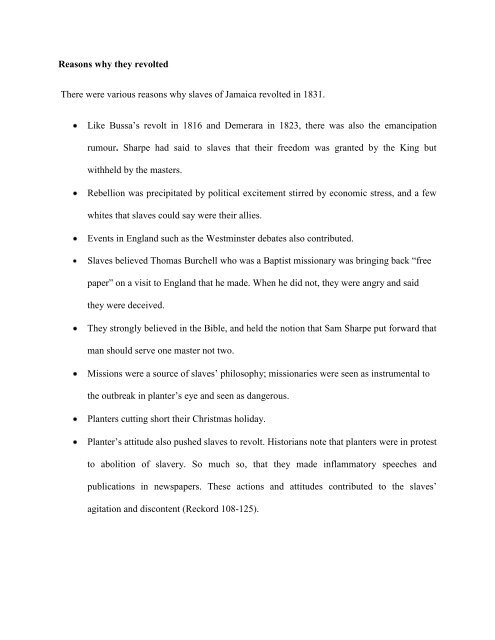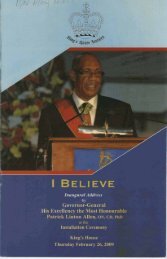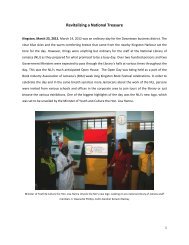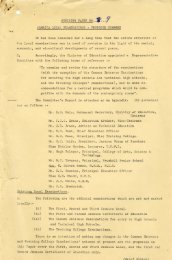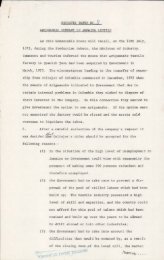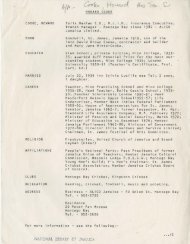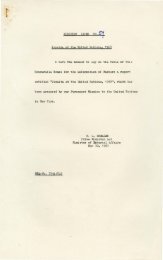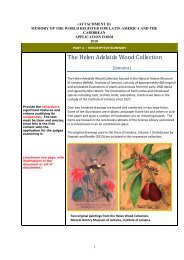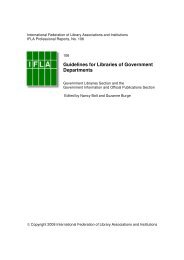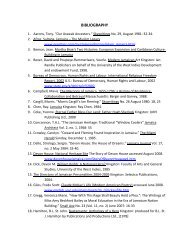The Emancipation Wars
The Emancipation Wars
The Emancipation Wars
Create successful ePaper yourself
Turn your PDF publications into a flip-book with our unique Google optimized e-Paper software.
Reasons why they revolted<br />
<strong>The</strong>re were various reasons why slaves of Jamaica revolted in 1831.<br />
Like Bussa’s revolt in 1816 and Demerara in 1823, there was also the emancipation<br />
rumour. Sharpe had said to slaves that their freedom was granted by the King but<br />
withheld by the masters.<br />
Rebellion was precipitated by political excitement stirred by economic stress, and a few<br />
whites that slaves could say were their allies.<br />
Events in England such as the Westminster debates also contributed.<br />
Slaves believed Thomas Burchell who was a Baptist missionary was bringing back “free<br />
paper” on a visit to England that he made. When he did not, they were angry and said<br />
they were deceived.<br />
<strong>The</strong>y strongly believed in the Bible, and held the notion that Sam Sharpe put forward that<br />
man should serve one master not two.<br />
Missions were a source of slaves’ philosophy; missionaries were seen as instrumental to<br />
the outbreak in planter’s eye and seen as dangerous.<br />
Planters cutting short their Christmas holiday.<br />
Planter’s attitude also pushed slaves to revolt. Historians note that planters were in protest<br />
to abolition of slavery. So much so, that they made inflammatory speeches and<br />
publications in newspapers. <strong>The</strong>se actions and attitudes contributed to the slaves’<br />
agitation and discontent (Reckord 108-125).


